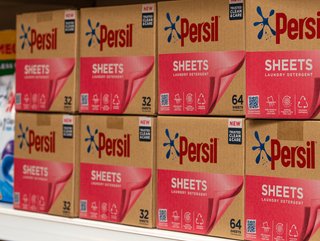Unilever’s Global Strategy for Reducing Supply Chain Plastic

The consumer goods industry is still evolving, yet leaves a trail of waste behind it. The global impact of the industry is represented by the plastic waste era and, while not all businesses can actively return their waste to the supply chain, they look to adapt their products to become either biodegradable or make them with recycling ease in mind.
Unilever has invested heavily developing paper-based solutions and adopting biodegradable or reusable materials for its extensive global supply chain of consumer products. The most difficult to switch are the very products that Unilever makes—liquid-based goods.
For this reason, Unilever became a signatory of The Ellen McArthur Foundation’s global commitment, which targets plastic use and management.
In The Global Commitment 2023 Progress Report, The Foundation shares a holistic overview of the current state of plastic use, and the actions that led to these gains. The report is published as a collaboration between The Foundation and the United Nations (UN) Environment Programme as a means of analysing the progress made.
The report covers all areas from unnecessary plastic packaging to post-consumer recycling and future strategies for 100% reusable, recyclable or compostable materials.
Pablo Costa, Global VP of Packaging at Unilever, explains: “It’s a voluntary initiative – led by EMF in collaboration with UNEP – which first launched in 2018, when the world faced the stark reality of a future where the amount of plastic in the ocean could surpass the number of fish”.
The problem of plastic: A key consideration for a sustainable supply chain
Focusing initially on the problem areas of plastic, the report shares activity against qualitative targets that producers, brands and retailers commit to.
In 2022, signatories intensified their efforts to reduce plastic packaging, slightly surpassing the total eliminated in 2021. Despite these efforts, 80% of brands and retailers still use one of the eight most problematic packaging types. While 65% of the reductions were achieved through material changes like substitution or lightweighting, direct elimination strategies rose significantly, from 22% in 2021 to 35% in 2022. Notably, the use of EPS packaging decreased by 36% from 2020 to 2022. The top quartile of signatories eliminated 92% to 100% of PVC or EPS packaging. However, globally, the use of PVC and EPS grew by over 3%.
Committed companies move away from single-use plastics
Using less single-use plastic doesn’t simply mean finding alternatives, but the entire system of procurement, manufacturing, and distribution of goods with new materials—often with different characteristics to those used previously.
The report suggests that while major investment is pumped into this, there has been little growth in the past couple of years. This is likely the result of continued investigation as companies are yet to reach the stage of delivering on-shelf sustainable packaging solutions for things like meat and other food products.
In 2022, 20% of packaging producers, brands, and retailers committed to sustainability increased their reusable plastic packaging. Among them, 25% raised their usage by more than 3 percentage points. Despite this, 53% reported having no reusable packaging, a slight improvement from 58% in 2021. While there has been a significant increase in efforts and attention towards reusable packaging since 2018, substantial progress is yet to be seen. However, pilots and studies over the past five years have highlighted key barriers to scalability and revealed opportunities for potential solutions in the industry.
I’m proud that many of our biggest brands – like Hellmann’s, Dove and Sunlight—are using high levels of PCR in their packaging,” says Costa.
“Using recycled materials not only helps to ensure that more plastic is collected and recycled, and—crucially—diverted away from the environment, but it also has a significantly lower overall greenhouse gas footprint than virgin plastic across the full packaging life cycle. Together, Global Commitment signatories are estimated to be contributing to the equivalent of a barrel of oil being left in the ground every two seconds.”
Building a circular economy means no more virgin plastic
A major milestone that businesses would like to see is to eliminate virgin plastic from the supply chain. This would effectively represent circularity in the system, but could also be a result of alternative materials taking shape.
Global Commitment signatories, as a group, show minimal change in virgin plastic use since 2018 (-0.1%). While 65% of brands and retailers have reduced their virgin plastic packaging, with the top 25% achieving a 13% reduction, this progress is offset by increased use among some large organisations.
This flat trend contrasts with an 11% market-wide increase in virgin plastic use over the same period. Of the signatories with 2025 targets for virgin plastic reduction (85%), only 27% are on track or have met their goals. However, at the current pace, the group is unlikely to meet their collective target of a 21% reduction.
*******************
Make sure you check out the latest edition of Sustainability Magazine and also sign up to our global conference series - Sustainability LIVE 2024.
*******************
Sustainability is a BizClik brand.






